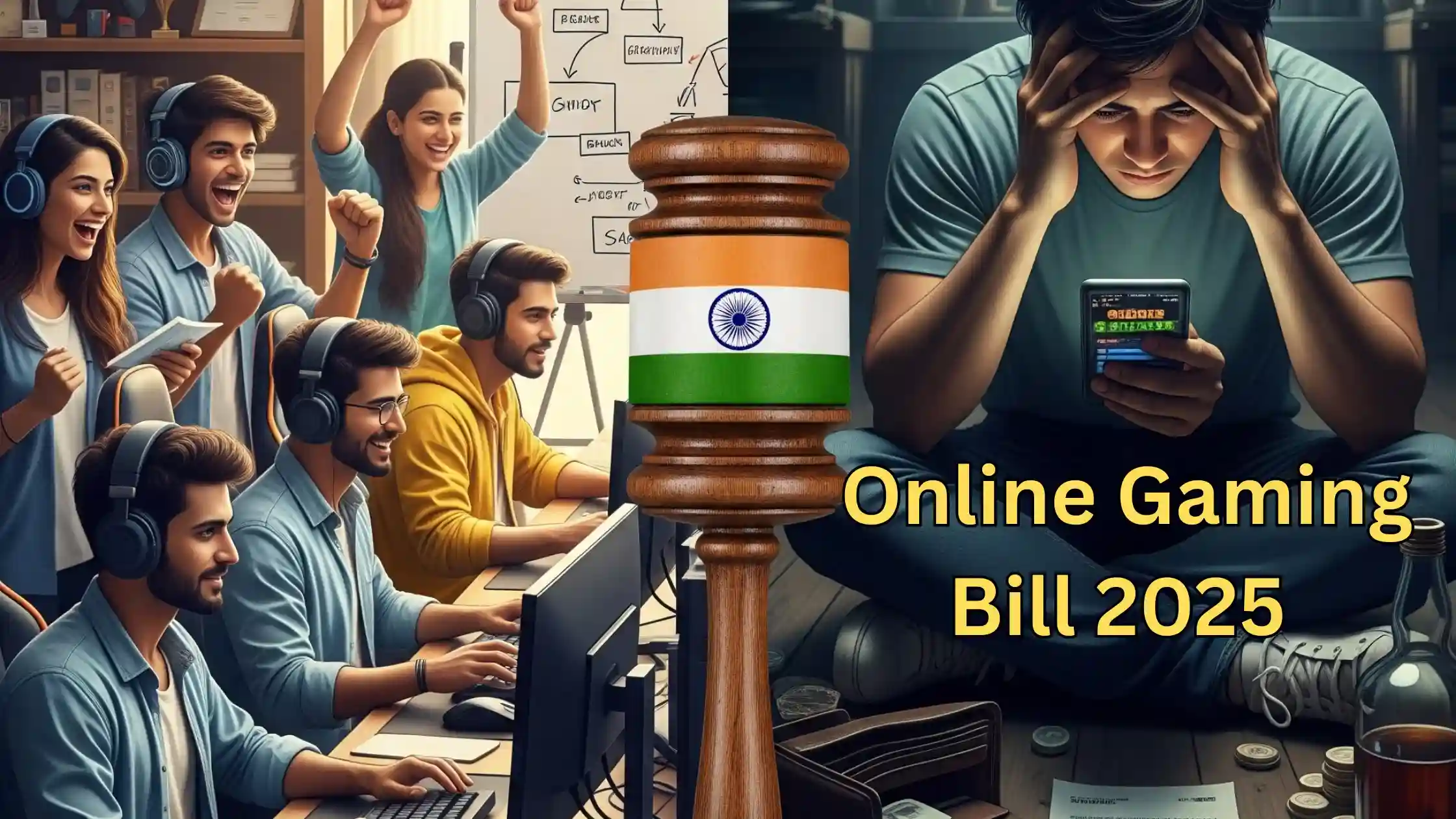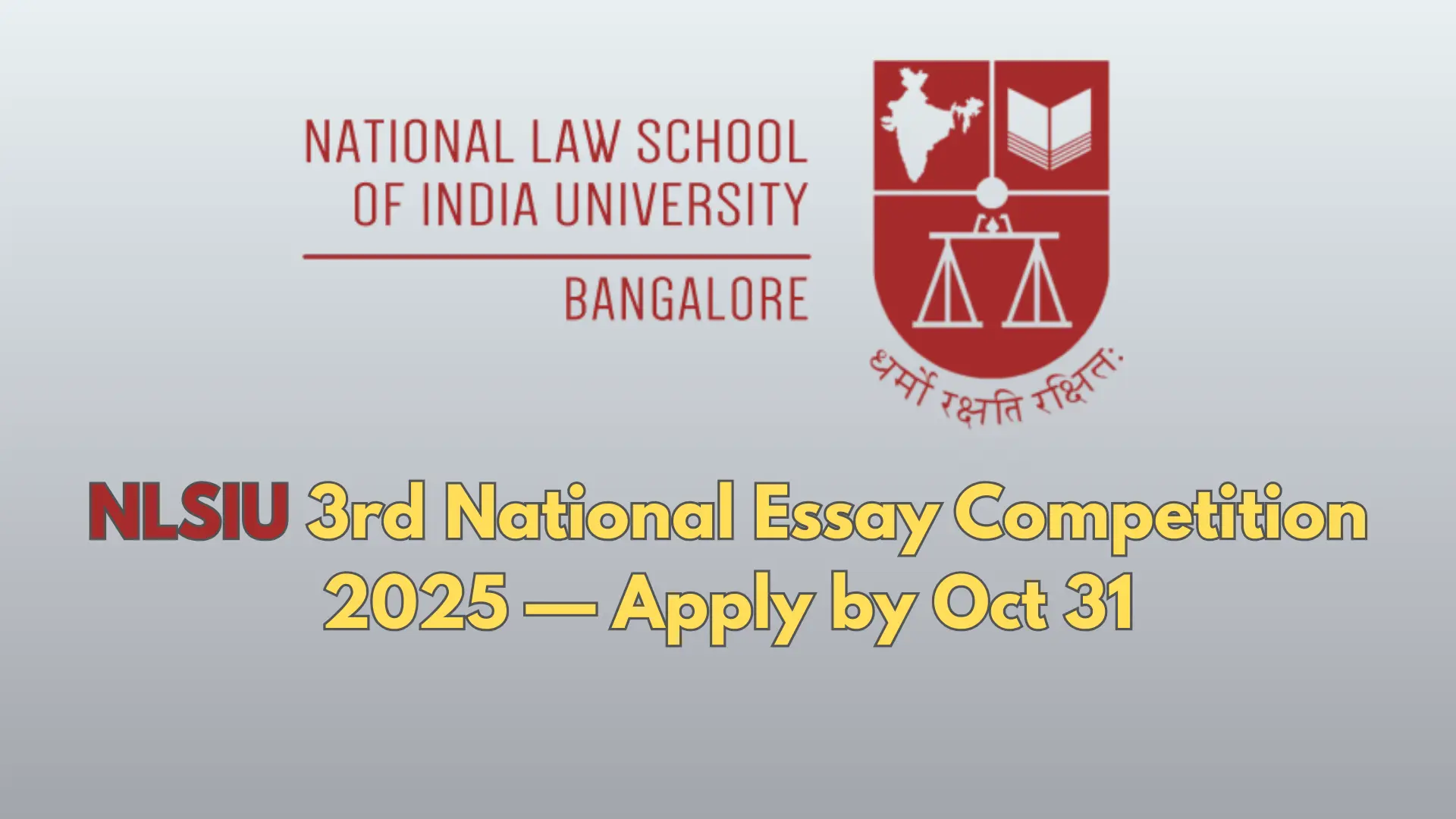On 20th August 2025, the Lok Sabha passed the Promotion and Regulation of Online Gaming Bill, 2025. For the first time, India has given a national-level legal framework to control and shape the booming online gaming industry. But the Bill has already shaken the industry, the players, and even legal experts because of one central move — a total ban on real-money online gaming.
The government says this law is about protection. Industry says it’s about destruction. And the debate has only begun.
What the Bill Does
The Bill creates a clear legal line:
- Real-money games? Totally banned.
This includes fantasy sports, rummy, poker, betting, lotteries, and any game played for stakes. Even if a game is skill-based, the ban applies once money comes in. - Financial institutions? Hands off.
Banks, UPI, wallets — none can process transactions linked to real-money games. - Regulator created: NOGC.
The National Online Gaming Commission will regulate the sector, classify games, issue registrations, and block violators. It will handle grievances, ensure age checks, enforce data safety, and even set up an appellate tribunal. - E-sports recognized.
For the first time, E-sports gets formal recognition as a sport. Training academies, infrastructure, and government support are promised. - Social, educational, and cultural games promoted.
Safe, skill-building, non-monetary games will be encouraged to push digital literacy and cultural growth. - Consumer protection and security.
Addiction, fraud, mental health, money laundering, and even terror financing are cited as the dangers that this Bill is meant to curb.
Penalties
The law comes down with heavy punishments:
| Offense | Penalty |
|---|---|
| Operating or facilitating real-money gaming | Up to 3 years jail + ₹1 crore fine |
| Advertising money games | Up to 2 years jail + ₹50 lakh fine |
| Financial institutions enabling transactions | Up to 3 years jail + ₹1 crore fine |
| Repeat offenses | Up to 5 years jail + ₹2 crore fine |
Enforcement agencies also get warrantless powers of search, seizure, and arrest — linking the Bill with provisions of the Bharatiya Nyaya Sanhita, 2023.
Why It Was Brought
The government’s justification is clear:
- To save families from addiction-driven financial ruin.
- To curb fraud and money laundering.
- To stop online games from becoming tools of terror financing.
- To protect youth and promote “safe” online engagement.
On paper, it looks like a law to protect citizens.
The Backlash
But the reception has been anything but smooth.
- Industry bodies like the All India Gaming Federation call it a death blow, estimating losses of ₹20,000 crore and thousands of job cuts.
- Legal experts argue that India has long recognized skill-based games like Rummy as legitimate — this Bill wipes that distinction away.
- Opposition leaders accuse the government of rushing the Bill without consultation and ignoring economic realities.
- The fear is that banning regulated platforms will only push people to illegal offshore sites, creating even more unregulated dangers.
Summary Table: Online Gaming Bill 2025
| Theme | Description |
|---|---|
| Ban on real-money games | Blanket ban on all monetary stake games, even skill-based. |
| Regulator | National Online Gaming Commission (NOGC) with broad powers. |
| Promotion | E-sports and educational/social games promoted as safe alternatives. |
| Penalties | Harsh fines and imprisonment, stricter for repeat offenders. |
| Motivation | To curb addiction, fraud, money laundering, and threats to security. |
| Concerns | Economic fallout, loss of jobs, offshore illegal apps, legal overreach. |
The Bigger Question
This Bill opens up a larger constitutional debate. “Game of skill vs. game of chance” has been a line that courts have carefully drawn for decades. The 2025 Bill bulldozes that distinction.
At one level, it promises safety. At another, it risks destroying an entire industry — one that was growing, creating jobs, and bringing revenue.
So, is the Bill protectionist policy or over-regulation? Is it a step towards safer gaming or a shortcut that kills innovation?
That’s the debate India will now live with.
Final Word
The Promotion and Regulation of Online Gaming Bill, 2025 is more than just about games. It’s about law, economy, technology, and society clashing in real time.
Yes, addiction and fraud are real threats. But so are unemployment, economic losses, and the shutting down of legitimate businesses.
The real challenge ahead? Balancing protection with freedom. And that’s something this Bill, in its present form, doesn’t quite achieve.






